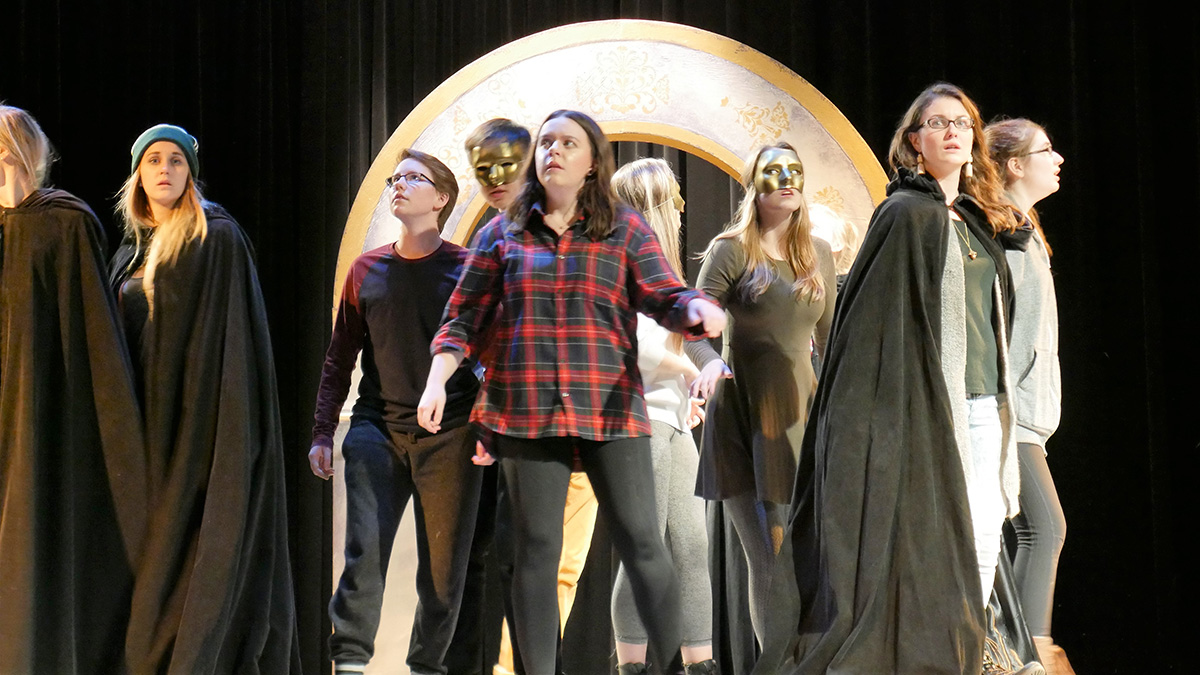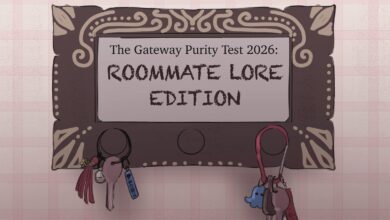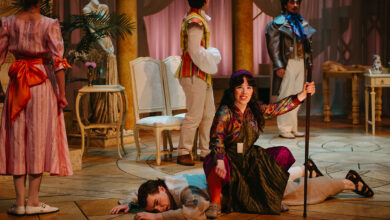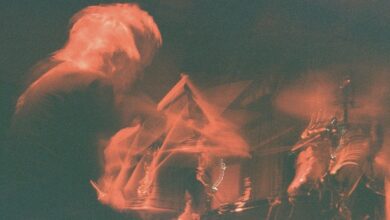ABBEDAM’s “Hernani” raises the stakes in plot and production
 Supplied
SuppliedBetween the King of Spain, the Creepy Uncle, and the Banished Rebel, who will win the love of the beautiful maiden? To find out, Hernani pitted these characters against each other in a classic tangled-up love story — one which has rarely looked so dramatic.
From November 2 to 6, ABBEDAM’s prodcution of Victor Hugo’s Hernani leapt onto the stage of the Second Playing Space in the Timms Centre for the Arts. In it, three livid men — Don Carlos (the King of Spain), Don Ruy Gomez de Silva (the Duke of Pastrana/ the resident creepy uncle), and Hernani (the banished rebel-boy) — vie for the love of the pure Doña Sol de Silva. The wildly chaotic, and over-the-top story includes countless threats, dead and dying bodies littering the stage, and trap doors from which various angry men emerge — but not for a moment does any of it feel faked, as the sword-bearing and dagger-clad undergrad students fight to the death for, what else, but love.
To accomplish this, Hernani embraced a different style of theatre than is typically not seen in 2016: melodrama. Tonya Rae Chrystian, the show’s director and two-degree alumni of the University of Alberta’s Drama Department, describes it as a chance to break a pattern.
“Melodrama is driven by human passions, behind which the stakes are always death,” she says, comparing the style to the usual psychological dramas seen on Canadian stages. “Everything is so very saturated.”
And saturated it was. The opening of the show featured a bedroom in which Doña Sol (played by Vina Nguyen) awaited her lover, Hernani (Sheldon Stockdale), but was instead faced with Don Carlos (Kael Wynn), who just threatened and bribed her maid so he could sneak into the bedroom. The result of the conflict is ridiculous, as men hid in closets, underneath the floor, and behind hidden doors, (all clearly the best solutions). But logic is never questioned, as the stakes are kept unfathomably high at all times.
With the high stakes though comes the challenge of fulfilling such strong character impulses. Chrystian compares the process of learning the characters and the way they speak, to learning a new language.
“We had to create this understanding of what it’s like to be an actor in a melodrama,” she explains. “Figuring out new ways to create the space and the movement and the energy.”
Not only is Hernani in a language so different from the contemporary dialogue we’re used to hearing, but the entire concept of the show is one we’ve buried with time. Similarly to digging up a classical Shakespearean play for an audience in 2016, this production of Hernani is pulled from our cultural past and given a makeover.
Instead of the traditional chorus that would accompany the title character, Chrystian’s production used it to create spinoffs that could further tell, rather than narrate, the story. In one scene, three shadow couples of Hernani and Doña Sol imitated their actions and disappeared into the background. In another, the ensemble surrounded the action with picture frames of varying sizes to embody and surround the action.
What stands out alongside the unique production is the background of the production company itself. ABBEDAM Productions is technically a student group at the university. Its mantra is to give an opportunity for the creation of a full-scale student driven production to BA/BEd students, as opposed to solely BFA students — accordingly, the production group’s name is an anagram of the letters BA, BEd and MA. Chrystian, who is this year’s ABBEDAM director, says these opportunities do not come along often for people pursuing these degrees.
“As a director, to be able to say, ‘Yeah, let’s build a set, have 122 lights, a 20-person cast, and five people just doing backstage work,’ never happens,” she says. “Even for me, ABBEDAM represents quite a bump in the scale.”
Chrystian describes the text and the action as nothing less than epic, and a show of this calibre from a student-organized group can be described in the same way.
“The most exciting thing is just doing the hard work itself with everybody involved, and fighting our way through to the end.”




